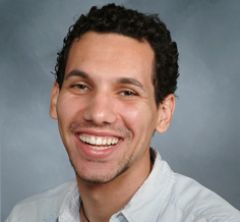
Overview
Graduate Programs and PhD Programs in Neuroscience at Weill Cornell Graduate School study the nervous system from a wide variety of scientific disciplines. Students interact closely with faculty studying the nervous system from a wide variety of scientific disciplines, including molecular genetics, biochemistry, pharmacology, neuroanatomy, electrophysiology, and computational and systems neuroscience. They work at the molecular, cellular and organism systems, ranging from insects to rodents to human and non-human primates.
Focus areas in the program of study include: neural disease, synaptic transmission, developmental neurobiology and regeneration, vision, computational and systems neuroscience, and neuropharmacology.
Over 60 faculty members in the program come from Weill Cornell Medical College (WCMC), Sloan-Kettering Institute (SKI, part of Memorial Sloan-Kettering Cancer Center), Burke-Cornell Medical Research Institute and Houston Methodist.
The research interests of the program cover the entire range of neuroscience, including the regulation of neural development, neuronal plasticity, control of neurotransmitter synthesis and release, learning, the response of neurons and neural tissue to injury, the regulation of gene expression, endocrine function, circuit development, vision and other sensory systems, information processing and behavior.
The basic science of developmental neurobiology explores the elementary processes by which the brain forms (morphogenesis), structure is established (histogenesis), neuronal and glial subtypes are specified from progenitors, connections are established and operates. Discoveries about the way that neurons form and communicate make this field one of the most promising routes toward increasing our understanding of the brain and mind. Genetics research in neurology and psychiatry is an exciting, rapidly advancing field that looks at the etiology of disease, as well as works to identify genetic predictors of disease, likely responses to available treatment and avenues to new therapies. Studies of epigenetic effects are opening a new perspective on "nature versus nurture" issues in brain development at the molecular level.
Development and function of the nervous system as a unifying theme of the Neuroscience program is reflected in the work at The Sackler Institute for Developmental Psychobiology. This institute is engaged in research on typical and atypical brain development. A primary objective is to use new techniques to study developing children in order to transform clinical methods. The Institute's program of research and training emphasizes functional neuroimaging, and genetic and behavioral influences on cognitive and emotional development. The Institute is both wide ranging and influential in its technical approaches to the study of children. It has become one of the best research centers in the world for the neurocognitive study of children.
Research is also ongoing in the fields of cerebrovascular physiology, cerebral ischemia, cellular and system neurophysiology, cellular and molecular neurobiology, neuroanatomy at the light and ultrastructural level, and imaging.
Translational research links many of the areas of basic science to clinical problems. Particular translational areas include studies in humans with brain injury, neural tube defect (spina bifida, anencephaly) and cortical malformations, neurodegenerative diseases, epilepsy, neuroimmunological and behavioral disorders.
Many members of the program have a special interest in questions that are particularly relevant to human disease, and their research has important implications for topics such as stem cell therapeutics, the regulation of pain, neurodegenerative diseases such as Alzheimer's and Parkinson's disease, neural tumors, stroke, addiction, aging, brain malformations, epilepsy, autism and neuropsychiatric illnesses.
Related Links

Program Requirements
Admissions
Applicants to the program are expected to have had thorough undergraduate training in biology, psychology, organic chemistry, physics and/or mathematics. Candidates must apply for admission online. Applicants are not required to take the Graduate Record Examination (GRE). Applicants whose native language is not English are required to take the TOEFL examination.
Becoming a Doctoral Candidate
The course of study, which includes course work, seminars, laboratory rotations and thesis research, is individualized. Students are expected to work closely with members of the faculty whose research approach complements their own interests. Regularly scheduled seminars, where work in progress is presented and discussed, afford students the broadest possible view of the neurosciences and are an important component of their graduate training.
Laboratory rotations allow students to experience research first hand and to acquaint themselves with the program's research faculty. Students are expected to complete at least three rotations of three months each, but may complete additional rotations, before choosing a thesis advisor (major sponsor).
Prior to July 1st of year two, students must successfully complete the ACE (Admission to Candidacy Examination). The ACE is designed to test the student's general knowledge of neuroscience and also includes preparation of an original written research proposal. In consultation with the thesis advisor, and with the consent of the director of the program, the student chooses an ACE topic and committee. The ACE topic should not be a part of the thesis. The committee should consist of 3-4 examiners, including a designated chair from the neuroscience graduate faculty, the student's thesis advisor and two grad faculty with expertise in the topic. With submission of the ACE the student should submit a one page thesis proposal.
PhD Research and Degree
Thesis research is completed usually within four to six years from enrollment in the program, under the direction of the student's major faculty sponsor. The Special Committee advises the student in his or her research, meeting at least annually with the student to monitor progress and to oversee development of the thesis. During this time the student continues to participate in the other educational programs offered by the graduate program but works full time in the laboratory. Annual special committee meetings are mandatory.
Upon completion of the thesis, the student prepares the work for publication, presents it to the University in an open seminar, and defends the validity of the work before the Special Committee and the members of the program. The culmination of the student's successful progression through the program is the final examination (the "defense") and certification by the Special Committee that the thesis represents an official piece of research satisfying the requirements of the Graduate School for the PhD degree.


Neuroscience at Houston Methodist
In 2022, the Neuroscience program expanded by founding a new program at the Houston Methodist Academic Institute. This program extends the long-standing academic affiliation between Weill-Cornell Graduate School and Houston Methodist to provide graduate training. This collaboration enhances the experience of students and faculty at both locations, promotes scientific interactions, and adds diversity to our student body.
Students and WCGS faculty at Houston Methodist engage in the WCGS curriculum via remote programming, with visits to New York City for program retreats and graduate school events, and with thesis research undertaken at Houston Methodist. View the leadership and faculty that play a key role in the neuroscience program, here. For more information, please see our website.




